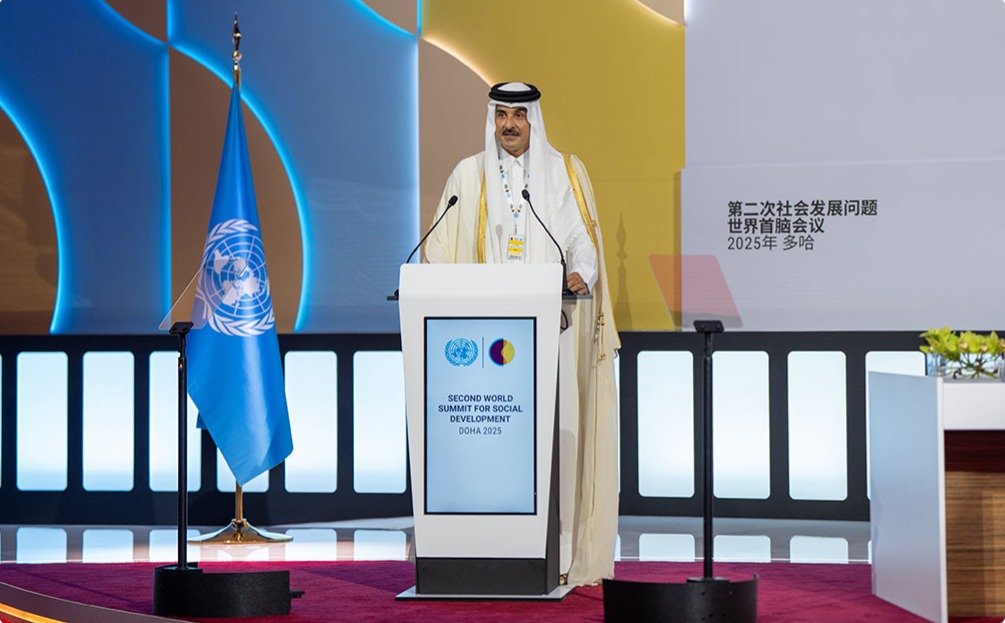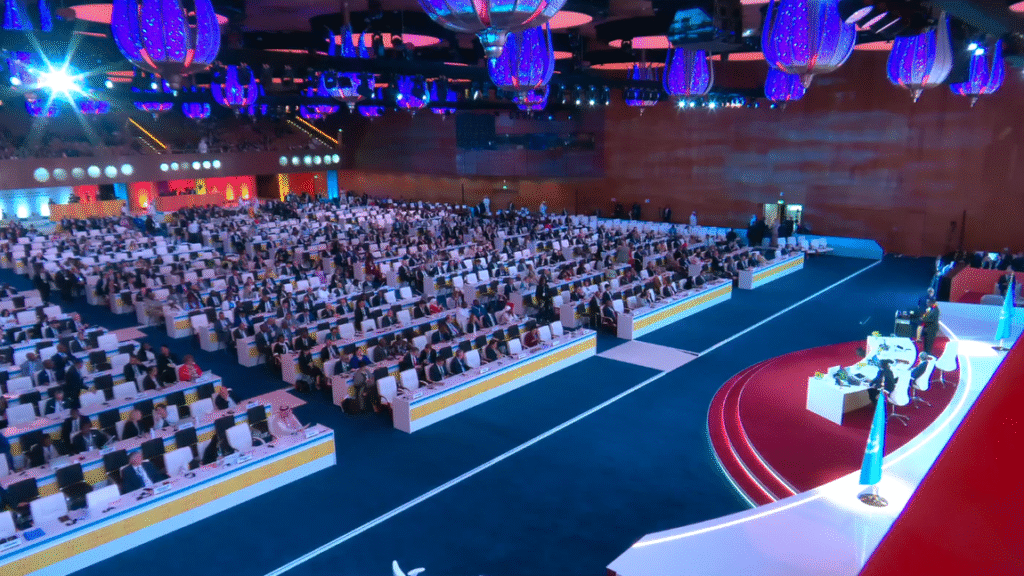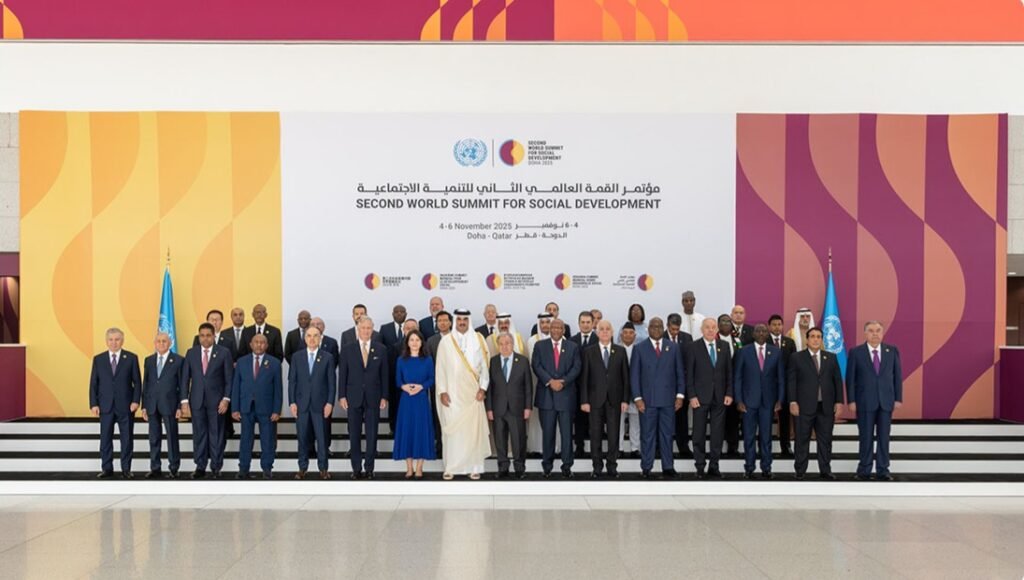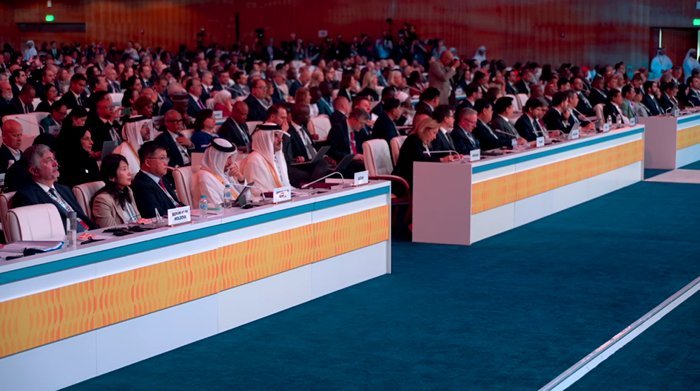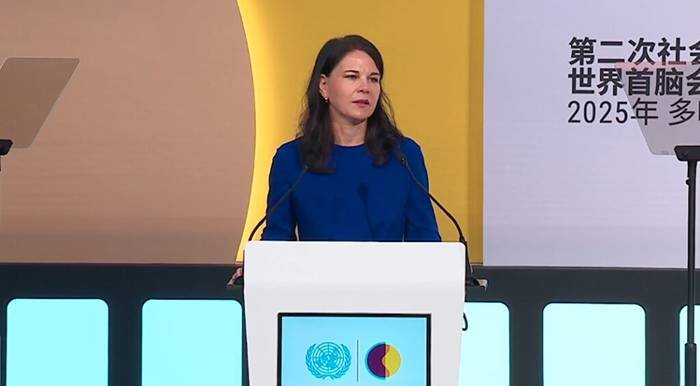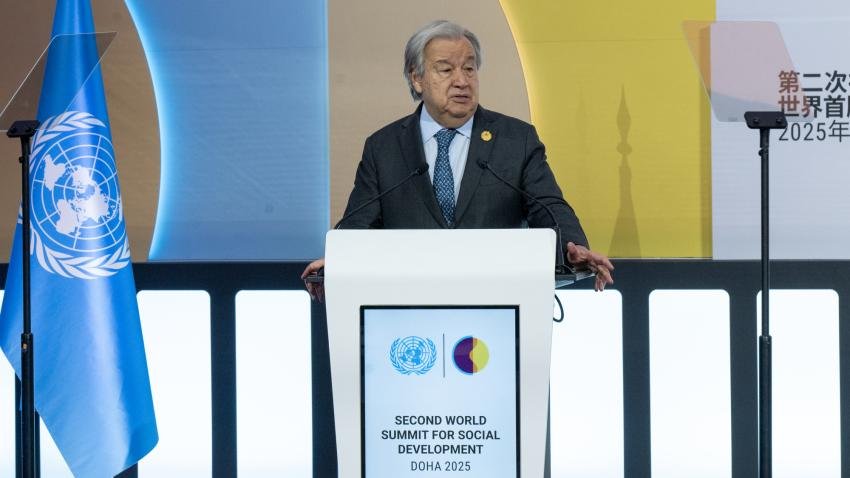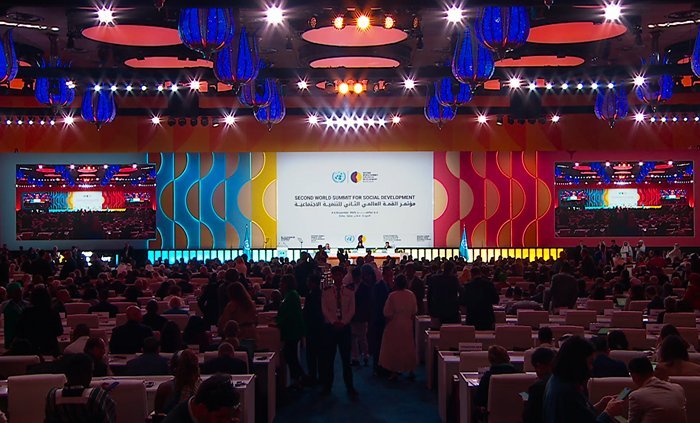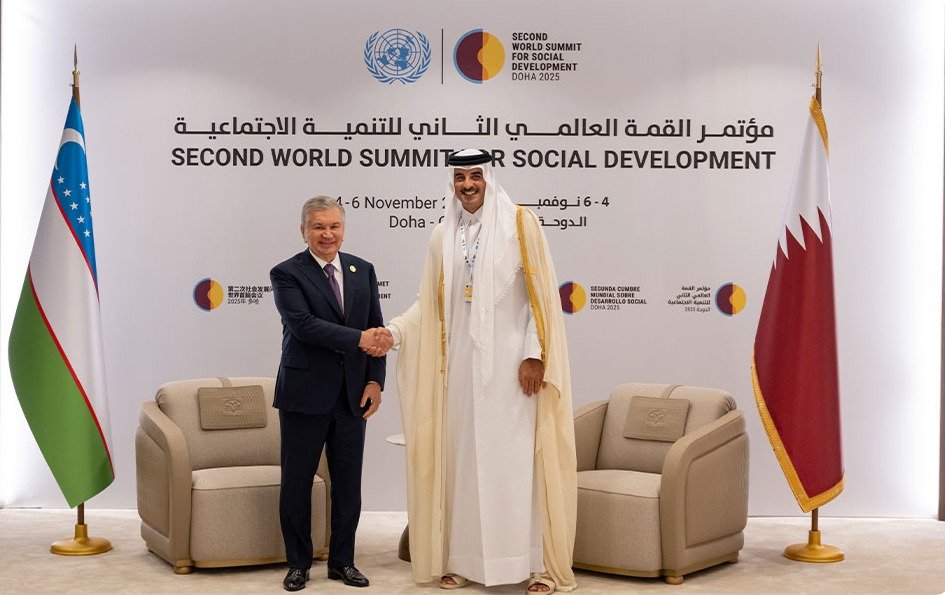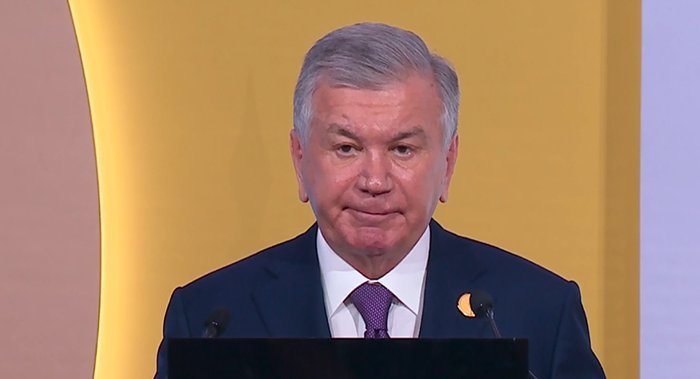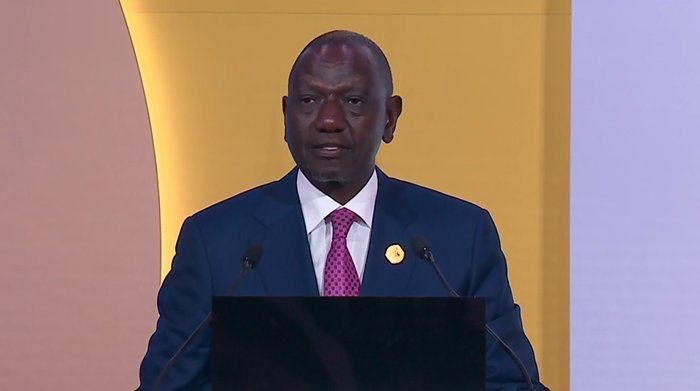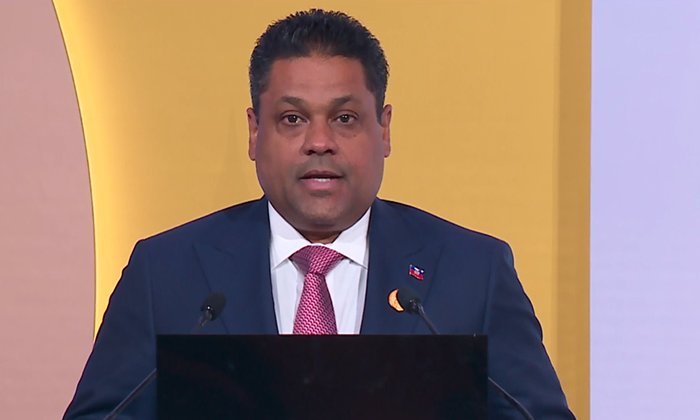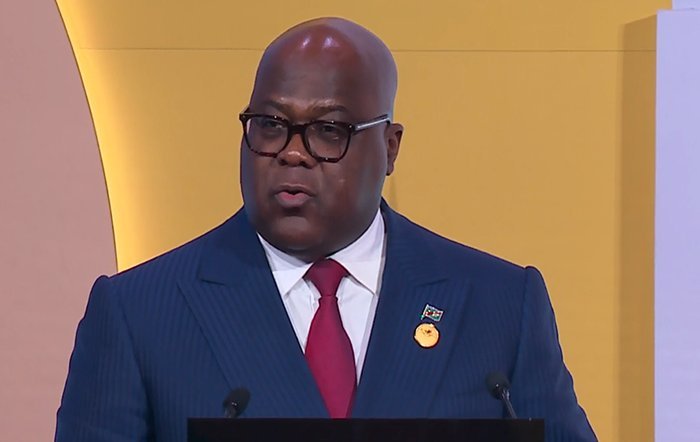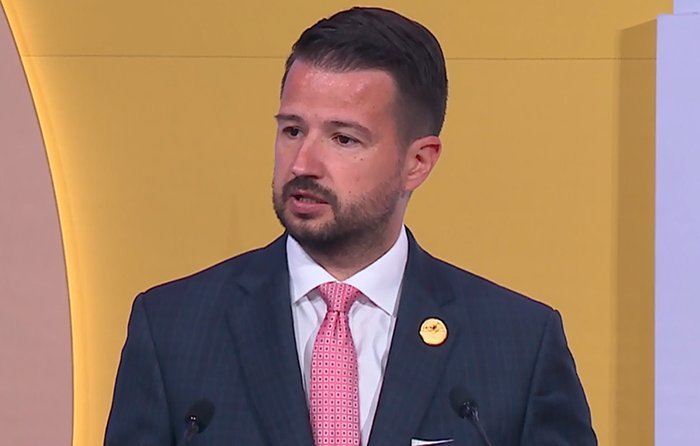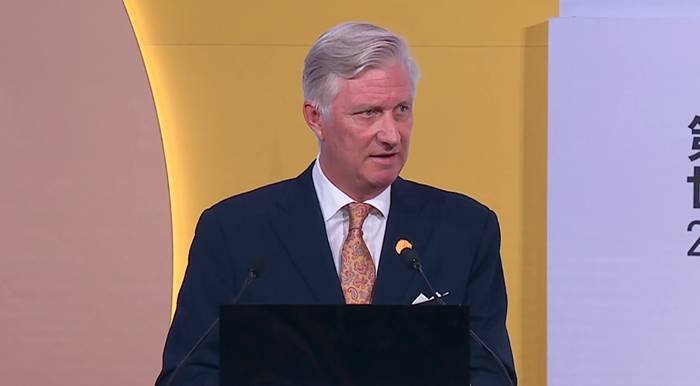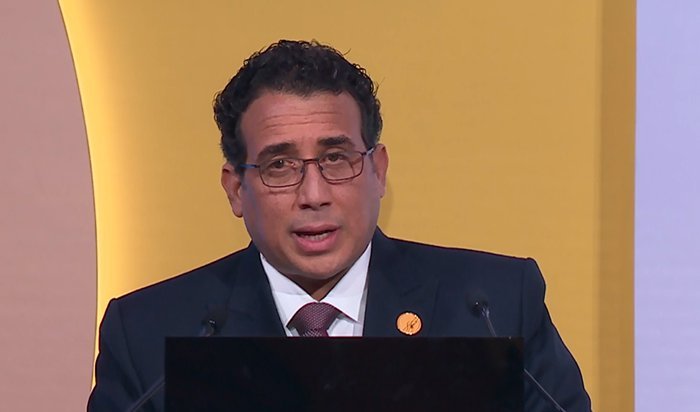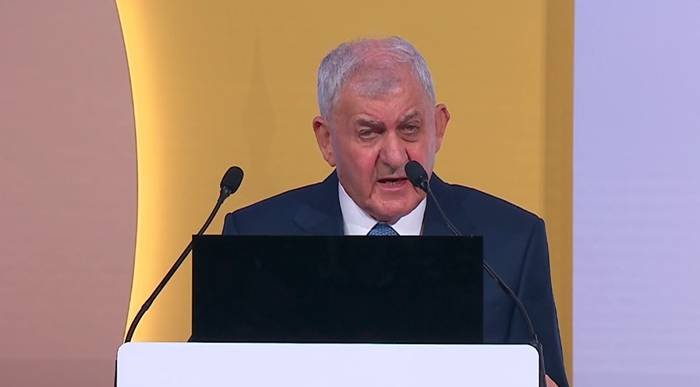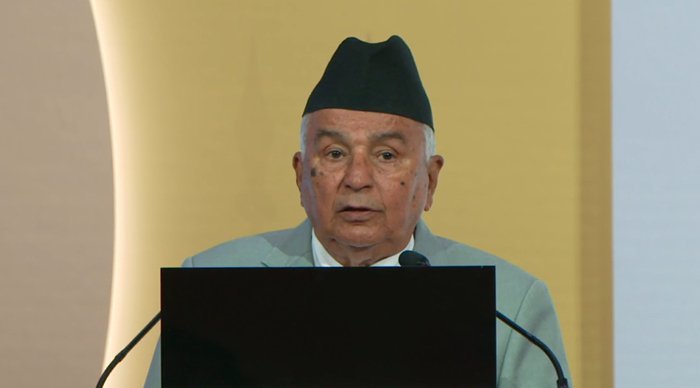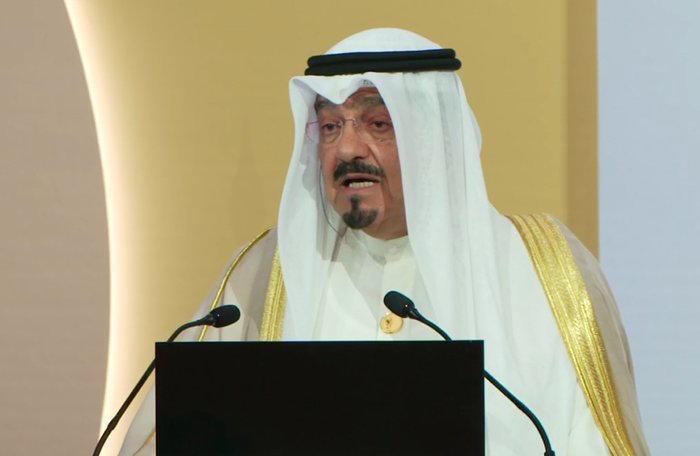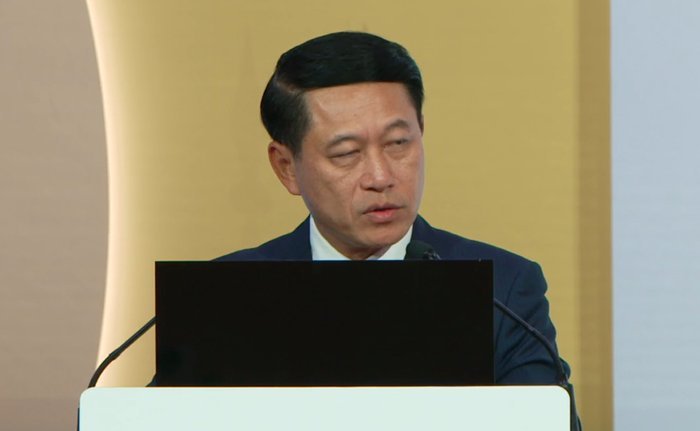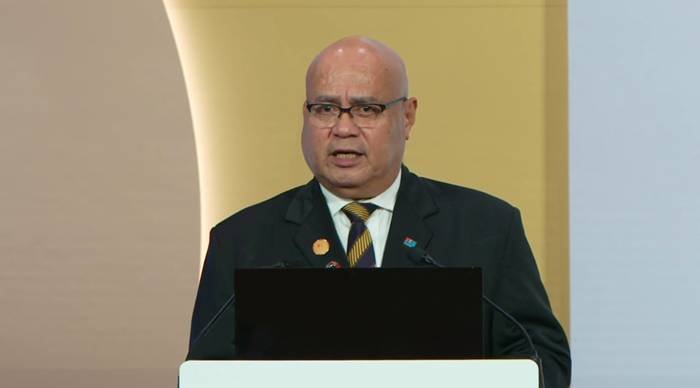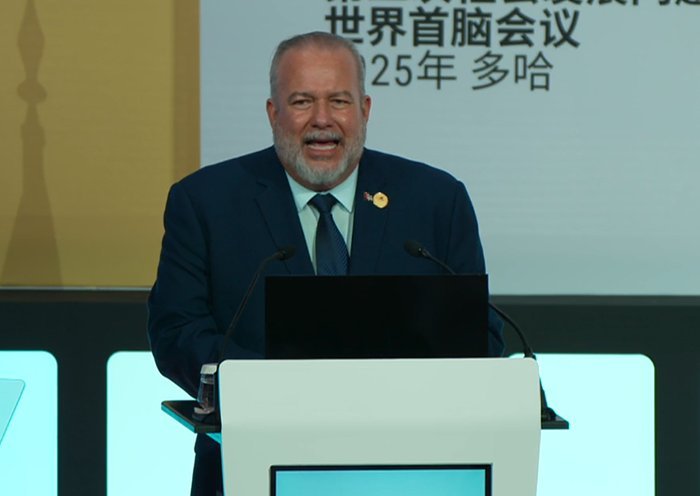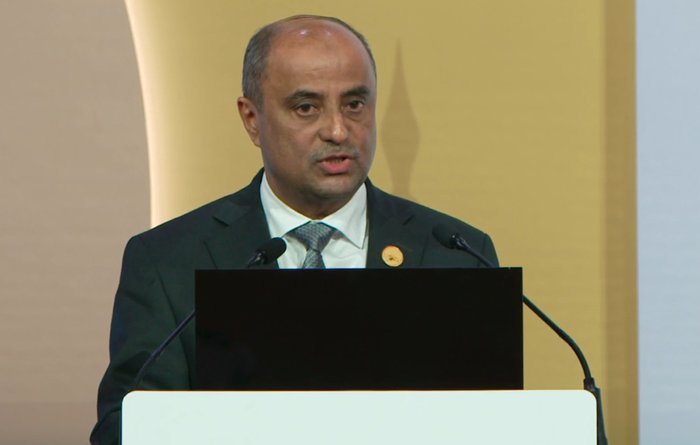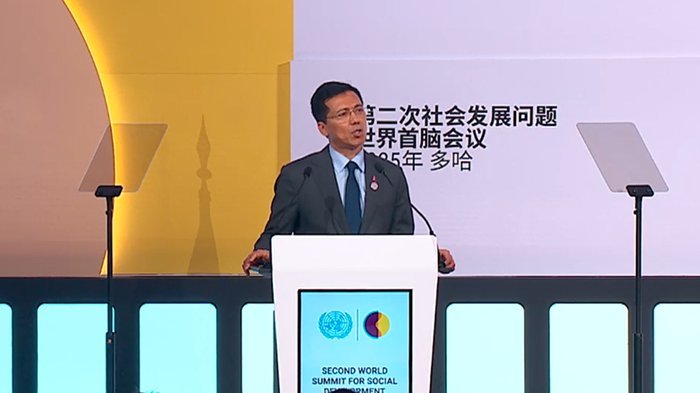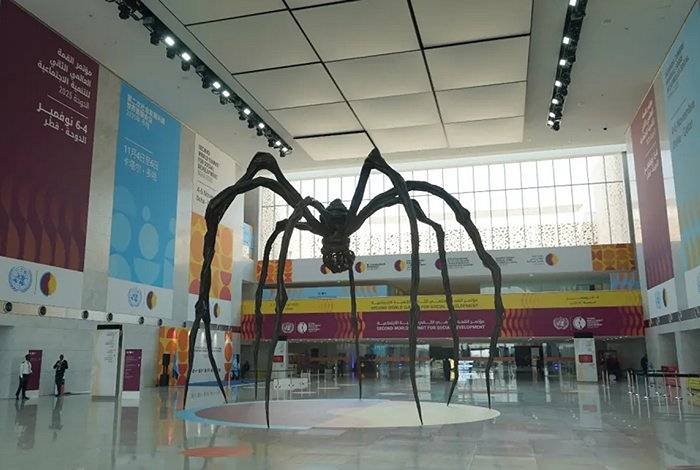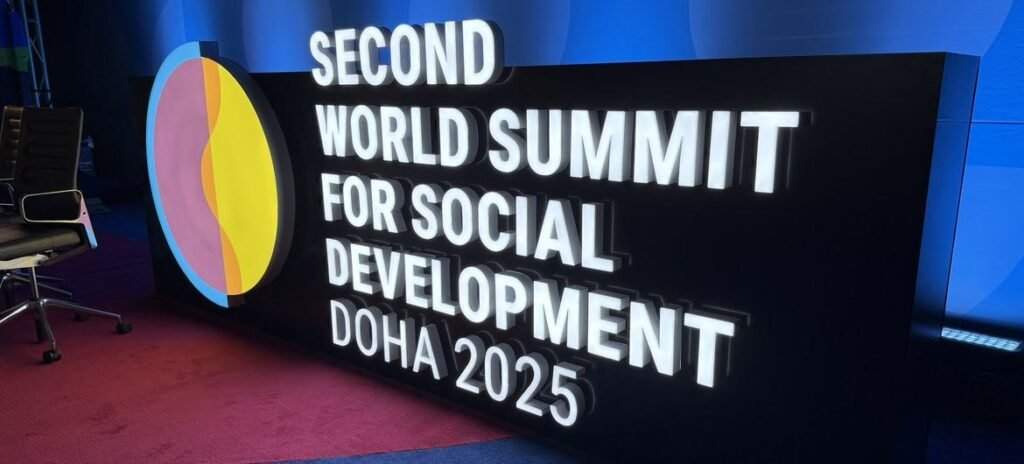Doha, Qatar, 04 November 2025 (United Nation)
Global leaders meeting at the Second World Summit for Social Development in Qatar today adopted a landmark pledge to build a fairer, more inclusive and sustainable future for all people.
The three-day Second World Summit for Social Development being held from 4 to 6 November under the auspices of the UN General Assembly, was inaugurated this morning by the Amir of State of Qatar, Sheikh Tamim bin Hamad Al-Thani. The mega world event is held at the state-of-the-art Qatar National Convention Center. The opening ceremony was attended by Heads of State and Government, ministers, heads of international organizations, youth, civil society and delegates from around the globe to renew their commitment to ending poverty, reducing inequality and advancing social progress.
During the opening session, the Amir Sheikh Tamim bin Hamad Al-Thani was elected Chair of the Second World Summit for Social Development.
By adopting the Doha Political Declaration(document A/80/L.5) by consensus, countries agreed to step up efforts to deliver on the promises made 30 years ago at the first Social Summit in Copenhagen and to accelerate progress towards achieving the Sustainable Development Goals (SDGs).
The Declaration renews and expands the 1995 commitments to meet today’s complex challenges, strengthening action on the interlinked pillars of poverty eradication, decent work and social inclusion. It calls for universal, gender-responsive social protection and equitable access to health and education while emphasizing the need to counter misinformation and hate speech that threaten democratic values.
The Declaration also highlights the importance of safe and inclusive digital transformation and ensures that youth, older persons, persons with disabilities, Indigenous Peoples and other marginalized groups are meaningfully engaged in shaping policies that affect their lives.
António Guterres, Secretary-General of the United Nations, recalled that the 1995 Copenhagen gathering was “a moment of moral clarity”, affirming that “true development isn’t about prosperity for the few — it’s about opportunities for the many”. While over a billion people have been lifted from poverty and access to health, education and social protection has expanded, he warned that today’s world faces “high uncertainty, divisions and widespread suffering”.
Doha Political Declaration ‘Booster Shot for Development’
Hunger, poverty and displacement persist, and the world is “not moving fast enough” on climate and the SDGs. Calling the Doha Political Declaration “a booster shot for development”, he urged a “people’s plan” to fight inequality, create decent jobs, reform global financing and foster unity. “This Summit is about hope through collective action,” he said, adding: “Let’s deliver the bold people’s plan humanity needs and deserves.”
Annalena Baerbock (Germany), President of the General Assembly, urged leaders to “go the last mile” to build a fairer world where “no one is left behind”. She recalled that “Copenhagen taught us that social development and inclusion are essential for strong societies”, while Doha must “end social injustice and guarantee dignity for everyone”. Despite major gains — unemployment at 5 per cent and extreme poverty halved — she warned that “economic growth alone has been insufficient to pull people out of poverty”.
Climate change, she said, “is the single largest obstacle to social development”, threatening to push millions into food insecurity. Stressing that social, economic and environmental challenges are “interconnected”, she called for debt relief, fairer trade, wider technology access and equal representation. “Everyone benefits when women are at the top designing, building and creating systems,” she said. “We must level the playing field for all — once and for all.”
Social Development ‘Not a Choice — an Existential Necessity’
Representing the host country, Tamim bin Hamad Al Thani, Emir of Qatar, said that “social development is not a choice — it is an existential necessity”. Qatar, he affirmed, stands ready to support international efforts to eradicate poverty, expand job opportunities and uphold human dignity for a fairer future. Highlighting national initiatives, he cited the Ministry of Family and Social Development’s 2024-2025 strategy, “From Care to Empowerment”, aimed at fostering communities based on equal opportunity. Internationally, Qatar will continue to combat poverty and inequality through the Qatar Fund for Development and Qatar Charity.
He stressed that the “bare minimum” is to uphold existing commitments, urging action to close implementation gaps from Copenhagen and to build partnerships for creative solutions. “It is impossible to achieve social development without peace and stability,” he said, calling for support to reconstruction and basic needs in Palestine “until justice is administered” and for an end to atrocities in Sudan.
Lok Bahadur Thapa (Nepal), President of the Economic and Social Council, warned that over 800 million people live in extreme poverty and nearly 2 billion lack social protection. “Even a minor setback — sudden illness, the loss of a job or a climate induced disaster” can thrust millions of others into poverty as well, he said, urging renewed global commitment to inclusive development and tangible progress for all.
Calls for Renewed Commitment to Social Development, Equality
In the ensuing discussion, leaders from developing and developed nations alike called for renewed global commitment to social development as a moral duty and shared responsibility. They emphasized tackling inequality, bridging the digital divide and reforming financial systems to make them more inclusive. Many underscored that social progress depends on peace, stability and full participation of women, as well as social dialogue built on trust and cooperation.
Speakers also highlighted national efforts to guarantee free education, universal healthcare and housing for all, stressing that equality begins with opportunity and dignity. They also urged that international solidarity move beyond short-term aid towards sustainable investment, ensuring that every person can live, work and dream in conditions of security and justice.
Abdul Latif Rashid, President of Iraq, speaking for the Group of 77 and China, urged efforts to “confront persistent social-development challenges by reducing uncertainty, inequality and insecurity”. He called migration “an enabler of development”, stressed the need to “bridge the growing digital divide” and said that social development cannot occur while “unilateral coercive measures continue to impede progress”.
Digital Divide Must Be Closed, International Financial System Reformed
William Ruto, President of Kenya, speaking also for the African Group, said inclusion depends on access to services that “protect human dignity”. Housing insecurity, he added, “continues to breed inequality” and “affordable housing must become a cornerstone of social development”. He described the digital divide as “one of the greatest barriers of our time” and called for reform of the international financial system. He urged that the Summit “rekindle genuine dialogue” and reaffirm multilateralism.
King Philippe of Belgium said that social progress “lies at the core of the United Nations with its Sustainable Development Goals strategy”. There can be “no social progress and no sustainable development in the world without the full participation of women,” he stressed. Belgium’s social system aims to give everyone “an equal chance to succeed in life”, based on “the redistribution of created wealth” and “social dialogue founded on trust and cooperation”.
Shavkat Mirziyoyev, President of Uzbekistan, noted that his country is building a society “where the principle of human dignity is paramount”, and its new Constitution declares it “a social State”. Social protection programmes are now unified under a national agency, and poverty has dropped from 35 to about 6 per cent.
Reconciliation, Social Justice Prerequisites for Security.
Mohamed al-Menfi, President of Libya, said it is more urgent than ever “to renew commitment to social progress” in a world of widening inequalities. Libya’s welfare and free education systems remain pillars of national pride, and its 2023 development plan makes social progress a foundation for stability. “Human dignity is the guiding principle of our policies,” he said, emphasizing reconciliation and social justice as prerequisites for security.
Felix Tshisekedi, President of the Democratic Republic of the Congo, said that three principles of social development remain undisputed but “the world has not fully kept its promise”, with “gaps never so deep”. Despite decades of conflict, the Congolese people “have chosen to be resilient”. Key priorities include universal healthcare for newborns and pregnant women, free primary education enabling 5 million children to attend school and local development across 145 territories “to reconnect communities and reduce gaps between urban and rural areas”.
Jakov Milatović, President of Montenegro, said that “true social development stands on three essential pillars — the eradication of poverty, social inclusion and decent work”. These are “not merely aspirations”, but “the foundations on which we are building our society”. He cited higher wages and pensions, stronger labour rights and universal child allowances.
Anthony Franck Laurent Saint Cyr, President of the Presidential Transitional Council of Haiti, said social development “is not a choice — it is a duty”. Haiti’s four priorities are security, elections, humanitarian response and economic recovery. He said his Government is reintegrating youth formerly in armed groups and relocating displaced people “with dignity”, urging international support “to move from short-term aid to sustainable investment”.
Climate Change ‘Single Greatest Existential Threat’
Ram Chandra Poudel, President of Nepal, said inclusion, justice and social protection are the “bedrocks of social development”. With poverty halved since 1995 and SDG progress exceeding the global average, he cited gains in clean energy, gender parity and health. Yet, he warned that climate change disproportionately affects his country, calling for stronger global support to least developed nations.
Manuel Marrero Cruz, Prime Minister of Cuba, said humanity still faces hunger, conflict and an unjust international order. Condemning “genocide by Israel” and United States sanctions, he said unilateral coercive measures — including the decades-long blockade — hinder sustainable development, urging a new, fairer global order.
Feleti Teo, Prime Minister of Tuvalu, urged “innovative and smart” partnerships to advance social and climate goals. Stressing that climate change-induced sea level rise poses the “single greatest existential threat” to his country, he reaffirmed that “climate resilience is social resilience”.
Ahmad Al-Abdullah Al-Sabah, Prime Minister of Kuwait, said the first World Summit improved education, healthcare and social protection but warned that the “gap in justice is ever widening”. He stressed development is not a “passing achievement to be eroded by crises” and highlighted Kuwait’s “holistic care” and job creation, ensuring people are “at the centre of development”. He also noted the Kuwait Fund has provided $30 billion since 1961 to support projects in 107 countries.

